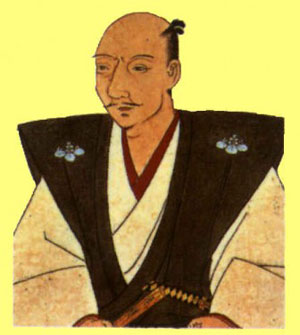 I’ve been maintaining a ‘Forgiveness Diary’ and every now and then I revisit it to see if I feel differently about people I’m committed to forgive but the resentments are running deeper than my resolve to forgive. Just as I was contemplating on the fact, I came across a beautiful quote which affected me deeply and has helped me change my perspective. “Heaven and Earth can never meet as long as you hold even one person outside of your heart.” from Devrah Laval, The Magic Doorway into the Divine. So, I began my journey of introspection…..
I’ve been maintaining a ‘Forgiveness Diary’ and every now and then I revisit it to see if I feel differently about people I’m committed to forgive but the resentments are running deeper than my resolve to forgive. Just as I was contemplating on the fact, I came across a beautiful quote which affected me deeply and has helped me change my perspective. “Heaven and Earth can never meet as long as you hold even one person outside of your heart.” from Devrah Laval, The Magic Doorway into the Divine. So, I began my journey of introspection…..
The first instinct when someone says something hurtful is 100% of the times ‘self-defense.’ Its the mother of all instincts. We tend to immediately wield our sharpest weapon against the offender and bring her down & then feel satisfied (ofcourse, at a gross level). If we’re unable to defend ourselves, the ‘hurt’ lingers on and the itchy feeling of at least detailing her all the reasons as to ‘why she is wrong,’ persists. What is worse is that it can persist life-long if we are unable to ‘give it back to her.’ Our clever mind keeps us busy by engaging itself into schemes of retaliation. At this point, you know that the set path is destructive but who can control the mind? And because you are treading a spiritual path and have read and theoretically understood that to forgive is divine, a deeper conflict emerges. ‘Am I grossly wrong in beating up my offender or in atleast making her realize she’s wrong!’ Vs ‘How do I forgive and emerge out of it unhurt.’ As the conflict rages on, you cannot seem to get it out of your mind and you activate a negative spiral of thoughts which seems to only collect negative impressions of your offender & more your mind is propelled into thinking how you were wronged, the deeper you fall into the resentment quick sand!
What can we do to overcome these strong negative thoughts? How can we relinquish ourselves from feelings conjured up by other’s acts? It set me think on deeper aspects of other’s behavior and motives. Did my offender know that what she said could hurt me deeply? What prompted her to behave as such? Why do I have such an urge to be understood rightly, every time?
Stephen R Covey has laid out seven habits of highly effective people & I’ve lived a part of my life following it sincerely and one of the habits he mentions is ‘to seek first to understand and then to be understood.’ So, I choose to apply it in this analysis because Covey says that we’re in a habit of deciding prematurely what the other person means before he/she finishes communicating. If you’re like most people, you probably seek first to be understood; you want to get your point across. And in doing so, you may ignore the other person completely, pretend that you’re listening, selectively hear only certain parts of the conversation or attentively focus on only the words being said, but miss the meaning entirely because most people listen with the intent to reply & not with the intent to understand. He calls it ‘autobiographical response.’
So, I decided to understand my offender first. Well, it was not an easy decision. It meant that I had to keep my ‘hurt’ aside and wear an objective hat, so that I’m not blinded by my own emotions. On can adopt various available techniques to bring about an objective frame of reference in the conscious realm either through meditative yoga, mantra chanting, breathing exercises or any other means of centering yourself and calming down your mind.
In a calm state of mind when there was possibility for clarity to emerge & objectivity to set in, I attempted to ‘understand’ the words of my offender. As I had drifted deep into this exercise, I realized that it had already provided me relief from the emotional burden (of negative thoughts) that I had been carrying all along. When we seek peace and clarity, we are ultimately creating the space within ourselves for alternative possibilities and healing. Without which, we will remain in a never-ending cycle of unnecessary pain and suffering. As we endeavor to sincerely understand the other person, it opens up the thus far unknown realm of what the other person’s state of mind is and gives us insight into what the other person is feeling & this shift in focus automatically puts us at ease on our own emotional front. If we are successful to break the chain of negative thoughts that
engulf us all the time and are able to bring our consciousness upto this point of peace and clarity, we become divinely empowered to see the ‘Truth,’ which most of the time is covered as we cover ourselves up with the blanket of our own emotions. I understood that to ‘hurt me’ was not the ‘real intention’ of my offender but she was acting on her primal instinct of ‘protecting’ her own sense of self (which is described as false-ego) under the cover of her blinds.
This is how we all act, unwittingly–each precious day of our life–under the spell of our false sense of self, pulling up our cover of emotions, wielding it with the hope that it will protect us, but it actually blinds us from the ‘Truth’ and what’s worse, we expect the other person to understand and respect our emotions, all the while not attempting to understand the other person’s state of mind or emotional being. But when you choose to understand the other person & his action, then you break the negative chain of thoughts and allow something wonderful to happen–the ability to see the ‘Truth,’ then, you have the healing choice of ‘Forgiving’ your offender & thereby ‘Healing’ your hurt. Dear friends, please understand that the only way to permanently heal your hurt is through ‘forgiveness’ and when we are able to truly forgive someone else, the person who benefits the most is ‘you!’ Remember, when we choose to crossover to the other side by attempting forgiveness, we are seeding new impressions that can form new habits. When we collect enough ‘impressions’ through ‘forgiving’ it automatically forms a new habit which means what was an endeavor earlier, now comes easily and naturally to us.
Radhanath Swami says ‘Mind is ones biggest enemy when uncontrolled, but majority of people put full faith on their enemy!’ He further elaborates that there can be lasting peace and happiness only if you keep your mind in captivity.
…Read Articles in preethi’s Blog













